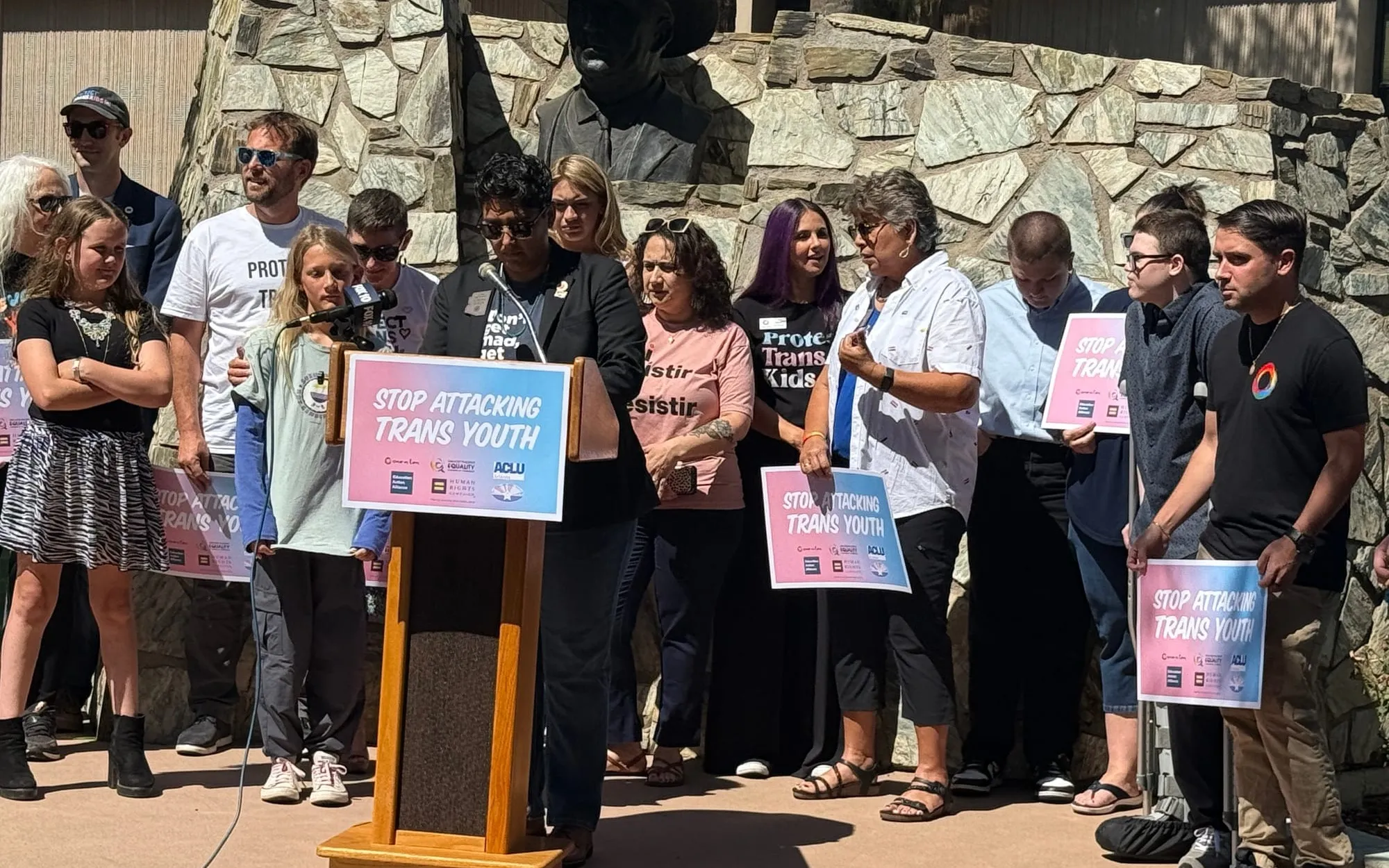Katie Hobbs
Arizona Youth Challenge Lawmakers on Anti-LGBTQ+ Agenda, Even Democrats in the Hot Seat

Organizers from across Arizona gathered at the state Capitol on Monday to kick off Pride Month and voice objections to what they termed a persistent wave of anti-LGBTQ+ legislation from the state Legislature.
This year, criticism not only targeted Republican lawmakers but also included two Democrats: U.S. Sen. Ruben Gallego and Gov. Katie Hobbs, both accused of advancing anti-LGBTQ+ rhetoric. Gallego’s remarks during a recent interview, which questioned the participation of transgender youth athletes in sports, sparked particular backlash.
“As a parent of a daughter, I think it’s legitimate for parents to be concerned about safety in sports,” Gallego stated, adding that there were some areas where trans children should not be allowed to compete. His comments drew parallels to outdated “separate but equal” arguments used against LGBTQ+ individuals in earlier decades, prompting disapproval from advocates who felt these views contradict progressive values.
In response to Gallego’s statements, LGBTQ+ advocates expressed disappointment, alleging a betrayal of the principles that garnered his previous support. A petition led by Scott Blades of the Tucson Interfaith HIV/AIDS Network articulated broader concerns about perpetuating harmful stereotypes within vulnerable communities.
Youth leaders at the Capitol did not hesitate to confront Gallego directly. Kado Stewart from the LGBTQ+ youth organization one•n•ten emphasized the importance of safe spaces in schools, advocating for the inclusion of transgender students in athletics to support mental health and teamwork.
Tucson student Violet DuMont challenged Gallego’s stance outright, suggesting that a lack of support for trans youth made him unfit for Congressional responsibilities.
Gov. Hobbs, an established ally of the LGBTQ+ community, faced criticism as well for consenting to HB 2112, a law that could categorize LGBTQ+ content as “adult” material. This concerned many who believe it undermines the accessibility of critical information for LGBTQ+ youth.
Harrison Redmond of ACLU Arizona voiced strong opposition, stating that the law’s implications could hinder access to essential resources for LGBTQ+ youth, emphasizing the responsibility leaders have to protect these communities.
The youth event at the Capitol, an annual Pride Month tradition organized by Rep. Lorena Austin, provided a platform for LGBTQ+ youth to communicate directly with lawmakers. It served not only as a forum for grievances but also as a celebration of community and resilience.
One participant, Mya Figueroa, encouraged her fellow trans youth to remain optimistic and affirmed their worth: “Don’t forget that you are not alone, you are loved, and needed in all spaces. You are whole just as you are.”


















